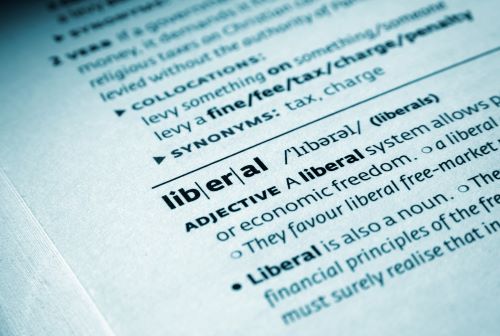Liberty Matters
Revolutions, Ideas, and the Principle of Prudence

Earlier this year, Bryan Caplan posted an interesting piece on our sister website Econlog titled "Revolution: Two Minimal Conditions," which is pertinent to our discussion here. The essence of his argument is as follows:[125]
Here's an extremely tempting argument for violent revolution:... Premise #2 is grossly overstated - for two distinct reasons.First, overthrowing any particular tyranny often involves committing a new giant list of specific, well-documented, horrifying crimes against humanity. The mere fact that you're fighting tyranny doesn't magically keep your hands clean. Indeed, the rhetoric of tyranny makes it psychologically easy to rationalize whatever new crimes against humanity you end up committing.Second, overthrowing any particular tyranny typically leads to the rise of a new tyranny. The reasons are familiar: Tyranny arises out of a culture of contempt for human rights, so it's much easier to set up a replacement tyranny than some non-tyrannical system....These insights lead straight to two new minimal conditions for morally permissible revolution. Namely: Fomenting revolution is wrong unless you have strong reasons to believe that (a) your revolution will not lead to big, new human rights abuses, and (b) your revolution will not replace one tyranny with another.Finding revolutions that run afoul of these strictures is child's play. The Arab Spring revolutions violated them. So did most of the movements for colonial independence -- including American independence. But the largely non-violent revolutions in the former Soviet bloc might make the cut. What makes them special? For starters, the focus on abolishing specific bad policies like censorship, state ownership, militarism, and emigration restrictions -- rather than gleefully handing the reins of power to a new group and assuming its members will use their new-found power wisely and justly.
- The existing government is tyrannical, as evidenced by a giant list of specific, well-documented, horrifying crimes against humanity.
- It is our right, if not our sacred duty, to overthrow tyranny.
- Tyrannies usually crush non-violent efforts to overthrow them.
- Tyrannies rarely give in to isolated violent efforts to overthrow them.
- So the only effective way to exercise our right/duty to overthrow tyranny is to band together for violent revolution.
I would like to make four comments. The first is that an important proviso must be added to Premise #2: "Even though it may be our right to resist and even overthrow tyranny, it may be unwise to do so, and we should refrain from doing so on the grounds of prudence."
Second, Caplan does not consider the problem of the classical-liberal or libertarian who is a bystander in a revolutionary upheaval taking place in the given society. Classical liberals and libertarians are now and have been so small in number in the past that they have very rarely instigated revolution (the sole exception to this may be the American Revolution or the first phase of the French Revolution), but they have been caught up when revolutions started by others have broken out. The moral dilemma facing these liberals is: what should they do? Stay out of it completely? Support the least bad group on the revolutionary side? Or seize the opportunity and start their own liberal subgroup on the revolutionary side (I’m thinking here of Albert Camus’s magazine *Combat*, which supported the French resistance in World War II), quietly and secretly providing assistance to individuals persecuted by the existing regime, or supporting the existing regime in order to persuade it to introduce needed reforms and to use as little force as possible.
Third, he says nothing about the state of public opinion at the time this hypothetical revolution breaks out. Have pro-liberty ideas penetrated either the public mind or the ruling elite, and if so, to what degree? If they have, does this mean that the society is now ripe for a successful revolution, and therefore the liberals should participate? If not, then the prognosis for a pro-liberty regime emerging after the revolution is probably zero, that a new dictatorship under a new Napoleon is most likely, and therefore liberals should have nothing to do with it.
Fourth, what do we think of the examples Caplan provides of a "morally permissible revolution"? Many conservatives and libertarians might object to his exclusion of the American Revolution from his listt.
Endnotes
[125.] Bryan Caplan, "Revolution: Two Minimal Conditions," Econlog, February 11, 2015 <https://www.econlib.org/econlog/archives/2015/02/revolution_a_mi.html>.
Copyright and Fair Use Statement
“Liberty Matters” is the copyright of Liberty Fund, Inc. This material is put on line to further the educational goals of Liberty Fund, Inc. These essays and responses may be quoted and otherwise used under “fair use” provisions for educational and academic purposes. To reprint these essays in course booklets requires the prior permission of Liberty Fund, Inc. Please contact oll@libertyfund.org if you have any questions.